- Home
- Catherine Coulter
Earth Song Page 5
Earth Song Read online
Page 5
“I would like to leave you forever! My father will discover the truth and crush you like the pestilence you are!”
Dienwald smiled. “It will make a jongleur’s tale that will cause the beams of the hall to creak with mirth.”
“You are the only lackwit here. I told you, my father wants nothing more to do with me.”
“Then perhaps I can instead discover the name of the man he wished you to marry. I can send a message to the clothhead and he can ransom you.”
“Nay!”
She’d actually turned white, Dienwald observed. Let her skin creep with the thought. He wondered who the man was.
“Arrogant fool,” Philippa said as she looked out the narrow window of her cell down into the inner ward. The sky was leaden in the late afternoon, and fog rolled over the castle walls. It had stopped raining some minutes before.
Dienwald de Fortenberry was striding across the now-muddy ward toward the stables, three dogs at his heels, followed by two small children and a chicken with sodden feathers. He’d ordered her taken by Northbert, a man with a very flat nose, to a tower chamber and locked in. Chamber, ha! ‘Twas a cell, nothing more. At least he hadn’t locked her down in the granary. Philippa watched him until he disappeared into the stables. Only the chicken followed him inside. The children and dogs were stopped by a yelling stable hand with the blackest hair Philippa had ever seen. Although he spoke loudly, calling the children little crackbrains, she could barely hear him over all the other people in the inner bailey. So many people, and so noisy, each with an opinion and a loud voice. The men yelled and shouted, the women yelled and shouted, and the children and chickens squawked and shrieked. It was a cacophony of head-splitting noise and Philippa turned away from the window slit and surveyed her room. It was narrow and long and held only a low bed with a rank-smelling straw-stuffed mattress and a coarse blanket. There was no pillow, no water to drink; there was a cracked pot under the cot in which to relieve herself, but nothing more.
It was heaven-sent compared to her residence in the wool wagon, but it still wasn’t at all what she was used to. She’d always taken Beauchamp and all the luxuries it had afforded her for granted. It had been her home, and all the people there were known to her and trusted. Now she was nothing more than a prisoner. All her wondrous escape had netted her was a dank cheerless room in the keep tower of a man more unpredictable than the Cornish weather and, by reputation, a thoroughly bad lot.
“Thass good quality, master,” Old Agnes was saying to the thoroughly bad lot, her gnarled fingers caressing the wool. “Jes’ lovely.”
“Aye,” Dienwald agreed. “Pick what wenches you need to help you clean and weave the wool and tell Ellis. I’ll have Alain hire weavers immediately. The first new tunic is for Master Edmund—aye, a new tunic and new hose.”
Old Agnes looked sour at that order but didn’t say anything. “What about the creature, master?”
“The what? Oh, her. She’ll be gone before you can give her a new gown. Let her return home in what we gave her. ‘Tis a gift.”
“Thass a lady, master, not a scullion.”
Old Agnes sometimes forgot herself, Dienwald bluntly informed her. Old Agnes gave him a toothless grin and a mirthless cackle and returned to picking filth from the wool. Dienwald left the stables, nearly stumbling over a chicken. The bird squawked, deftly avoiding the kick of a foot.
Dienwald sniffed the heavy air. White fog hung over his head in patches. It would shower again soon. There was time enough to practice with the quintains, since today was Tuesday, but he felt unsettled and restless. He made his way to the solar, where there were three small rooms, one used for St. Erth’s priest and Edmund’s tutor, Father Cramdle. He eased open the door to the sound of his son’s penetrating voice: “Thass naught but silly tripe for peasants!”
4
Father Cramdle’s voice, normally the model of patience and tolerance, was a bit frayed. “Master Edmund, peasants can’t read, much less cipher. Listen, now, ‘tis what your father wants. If I add eleven apples from this barrel to the seven bunches of grapes in this barrel, what is the result?”
“Purple apples!”
Dienwald’s first response was to laugh at his son’s wit, but he saw the pained look on Father Cramdle’s homely face. Edmund not only looked like a villein’s child, he was as ignorant as any of them.
“Answer Father Cramdle, Edmund. Now.”
“But, Papa, thass a foolish problem, and—”
“That is, not thass. I don’t want to hear that from you again. Answer the problem. Speak properly.” He remembered Philippa’s correction, made without thought. Had his son become so ill-managed? He wanted Edmund to read at least enough so he wouldn’t be cheated by merchants or his own steward in the future. He wanted him to cipher so that he would know if he’d gotten the correct measure of flour from the miller. Dienwald could sign his name and make out words if he spoke them aloud slowly, but little more. It wasn’t something he regretted very often, just at times like this when he saw the proof of ignorance in his son.
It required all of Edmund’s fingers and toes and painstaking counting, but finally the correct answer came from his mouth.
“Excellent,” Dienwald said. “Father, if the boy needs the birch rod, tell me. He will learn.”
“Papa!”
“Nay, little gamecock. You will remain here studying with Father Cramdle until he sees fit to release you. It is what I wish of you, and you will obey me.”
Dienwald left the room knowing that the kindly and very weak-willed Father Cramdle didn’t have the spirit to control a nine-year-old boy. Dienwald would have to involve himself more. As for Alain, the steward, he could control the boy, but Edmund hated Alain. Though he would never say why, he avoided him, slinking away whenever Alain came into the vicinity.
As Dienwald left the solar, he glanced over to the east tower. He saw Philippa de Beauchamp at the narrow window, looking down. He hoped she was scared out of her wits wondering what he was going to do to her. He would give her until the following afternoon to become appropriately submissive. She was too proud. She was also too big, too tall, too curly-haired. He had no complaint about her legs, which seemed to go on until they reached her throat, just as Crooky had pointed out. Her breasts seemed more than ample as well. But she wasn’t . . . He forced his thinking away from that channel. Kassia de Moreton was delicate and small and sweetly soft. And she would never belong to him. It wasn’t fated to be. Pity that he liked her hulking warrior husband nearly as much as he cared for her, else he would be tempted to slit Graelam’s throat some dark night and relieve him of his wife.
Dienwald sighed. He admired everything about Kassia—her gentleness, her shy humor and guileless candor, her fierce loyalty to her husband, her daintiness, even the smallness of her bones and her delicate wrists . . . Ah, well, it was hopeless. At least she was his friend, delighting in his company, though now she was determined to find him an heiress—to save him from mold and damp and ruin, she’d say, and pour him some of her father’s precious wine from Aquitaine. She wanted Dienwald to become respectable, a concept that thoroughly irritated and frightened him. But not for long. After all, what family would want to be allied with a rogue like him? It was just as well. The Scourge of Cornwall liked life just as it was. With the acquisition of the wool, the days would continue to be as entertaining as they’d been before the mindless sheep had plunged off that cliff.
It occurred to him a few moments later why he was so restless. He needed a woman. He didn’t delay, simply asked to have Alice sent to his chamber. When she arrived, plump and smiling, her arms held forward a bit to further push out her breasts, Dienwald waved her closer. When she stood in front of him, he started to sweep her onto his lap. But her smell stopped him cold. “When did you last bathe?”
Alice flushed. “I forgot, master,” she said, eyes cast down. She knew to avert her eyes, because if she looked at him, he just might see the amazement on her face. All this insis
tence upon rubbing her body with water and soap! It was beyond foolish.
Dienwald wanted her, but even her breath smelled of the stuffed cabbage she’d eaten the previous night.
“I won’t have you again in my bed until you wash yourself—all of you, do you understand, Alice? With soap. Even between your legs and under your arms. And cleanse your teeth.”
He sent her away, calling out, “Use the soap!” He’d first herded her into his bed only two weeks before. She’d learn, he hoped, that he liked a woman’s body to be free of odor and her breath sweeter than that of his wolfhounds.
He waited, tapping his fingertips impatiently on the arms of the single chair in his chamber. When Alice appeared thirty minutes later, her hair wet from its washing but smooth from a good combing, and her breath pure as a spring breeze, he smiled and patted his thighs.
She came to him willingly, and when he brought her to stand between his thighs, she again pressed her breasts forward. He wondered who’d taught her to do this. Normally it amused him. Now, however, he wanted only release, and quickly. He slipped her coarse gown over her head, to find her naked beneath. She hadn’t dried herself completely, and his hands slid over her moist flesh.
He clasped her hands down to her sides and looked at her. She was white and plump and smooth as an egg. She would also be quite fat in no more than five years, but that didn’t disturb him one whit. She was merely pleasingly bountiful now, the flesh between her legs soft and damp, and she was nearly the same age as his long-legged prisoner in the east tower.
He kissed Alice’s mouth, tentatively at first, until he knew that she’d cleansed her teeth; then he became more enthusiastic. When at last he eased her down onto his manhood, groaning at the feel of sinking deep into her body, he leaned back his head, closing his eyes. Finally he played with her hot woman’s flesh until she squirmed and arched her back and cried out. Then he allowed himself relief, and it was sweet and long and good.
He left her asleep on his bed and quit his solar, stretching and contented, every restless feeling stilled. Night had fallen and the evening meal was late, as usual. Dienwald thought about his prisoner, alone and probably so hungry she was ready to gnaw on the cot in her chamber. He decided he was feeling benevolent and told Northbert to have her fetched. She would doubtless be grateful to him for feeding her.
When she appeared beside Northbert, he motioned her to the chair beside his.
“Thass the witch,” Edmund said, waving a handful of bread toward the approaching Philippa.
“She’s not a witch. And it’s that is, not thass. Mind your manners, Edmund. She’s a lady, and you will treat her politely.”
Edmund grumbled, and Dienwald, giving him a very pointed look, added, “One insult, and you will spend your evening with Father Cramdle reading the holy writ.”
The threat brought instant obedience. Dienwald studied his prisoner again. She didn’t look like a lady, of course, in that shapeless coarse gown, bare feet, and thick curling hair loose around her head.
“God’s greetings to you, lady,” he said easily to Philippa. “Sit thee here and take your fill.”
“What? The master offers me a chair rather than the dank floor?”
He eyed her. Some show of gratitude. He should have guessed. She wasn’t one whit broken; not a shadow of submissivenes. She was still insolent. He should have held to his original plan and left her in that chamber alone for twenty-four hours. He continued, still tolerant, lounging back in his chair, “There are no females at St. Erth as great-sized as you, lady, so moderate your appetite accordingly, for there are no more gowns for you.”
“God bless your sweet kindness, sir,” Philippa said with all the gratitude of a nun who’d just been made an abbess. “You have the charitable soul of Saint Orkney and the pious spirit of a zealot.”
“There is no Saint Orkney.”
“Is there not? Why, with your example, kind lord, there should be. Yes, indeed.”
Philippa smiled at him, her dimples deep, so pleased with herself that she couldn’t help it. Then she smelled the food. Her stomach growled loudly. She forgot Dienwald de Fortenberry, forgot that her situation was fraught with uncertainty, and looked down at her trencher, on which lay a thick slab of bread soggy with rich gravy and decorated with large chunks of beef.
Dienwald watched her attack the meal. A bold wench with a ready tongue. No wonder she thought her father didn’t want to ransom her. Who would want such a needle-witted wench in his keeping? Unaccountably, he smiled. When she mopped up the trencher with her last chunk of bread, he said, “Will you eat all my mutton and pigeon as well? Every one of my boiled capons, with ginger and cinnamon, and all of my jellied eggs?”
“I don’t see the jellied eggs.” There was stark disappointment in her voice.
“Perhaps you ate them without seeing them. Your hands and your mouth toiled very diligently.”
She turned to him. “And surely you wouldn’t have mutton, would you? Didn’t you lose all your sheep?”
Dienwald had to pause a moment on that one. He saw her dimples deepen again, and realized she was enjoying herself mightily at his expense. One could not allow a woman to have the last word. It was against the laws of man and God. It was as intolerable as a kick to the groin.
He shook himself. “What wear you beneath that gown?”
A man, Philippa thought, used whatever weapons available to him. Her father was a master at bluster. His nose turned red, his eyes bulged, and he raged long and loud. Her cousin Sir Walter de Grasse, if she remembered aright, turned sarcastic and cold when he was in a foul temper. Her father’s master-at-arms never thought, just struck out with his huge fists. As for this man, at least his dagger still lay snug in its sheath at his belt, so a show of violence wasn’t on his mind. It relieved her that he wished to best her with words, even though they were meant to shrivel her with embarrassment. Unfortunately, she’d taken a sip of the strong ale when he’d spoken, and now she choked on it. He slapped her on the back, nearly sending her face into a wooden platter of boiled capon.
“I can feel nothing,” Dienwald said as he leaned down close to her. His fingers splayed wide over her back. “No shift? No pretense at modesty?”
Philippa felt the urge to violence—after all, she was her father’s daughter—and she acted instantly. Quick as a snake, she reached for his dagger. She felt his hand lock around her wrist until her fingers turned white from lack of blood.
“You dare?”
She’d thought with her feet again, and the result had brought his anger on her head. She shook her head.
“You don’t dare?”
But there was no anger in his tone, not now. He seemed amused. That was surprising, and vastly relieving as well. He loosened his grip on her wrist and pressed her hand palm-down against his thigh. Her eyes flew to his face, but she didn’t move.
“I have decided to give you a choice, lady,” Dienwald said.
Philippa wasn’t at all certain she wanted to hear of any choices from him.
“Not a word? I don’t believe it.” He paused a moment, cocking a brow at her. She remained silent.
“You tell me your father won’t ransom you. You also refuse to tell me the name of your unpleasant suitor. You balk at telling me the name of this cousin you were running to. Very well, if you aren’t able to bring me pounds and shillings and pence, the very least you can do is repay my hospitality on your back. It is doubtful, but perhaps I’ll find you acceptable in that role, at least for a limited time.”
She’d been right: she hadn’t wanted to hear his choices.
“You don’t care for the thought of me covering you?”
Surely a man who allowed children, dogs, and a chicken to follow him about couldn’t be all that bad. There were still no words in her mind.
“Wrapping those long white legs of yours around my flanks? They’re so long, mayhap they’ll go around me twice. And plucking your virginity? Doesn’t that give you visions of deliriou
s pleasure?”
“Actually,” she said, looking out over the noisy great hall at all the men and women who sat at the trestle tables eating their fill, laughing, jesting, arguing, “no.”
“No, what?”
Philippa reached for a capon wing with her left hand and took a thoughtful bite. She couldn’t let him see that he’d stunned her, demolished her confidence, and made her nearly frantic with consternation. Wrapping her legs around his flanks? Plucking her . . . Philippa wanted to gasp, but she didn’t; she took another bite of her capon wing. Dienwald was so surprised at her nonchalance, her utter indifference, that he released her wrist. She shook her hand to get the feeling back, then reached for another piece of capon. Before she brought it to her mouth, she dipped it deep in the ginger-and-cinnamon sauce.
Dienwald stared at her profile. More thick tendrils had worked loose from her braid, a braid as thick as Edmund’s ankle, and curled around her face.
She turned back to him finally, dipping her fingers into the small wooden bowl of water between their places. “ ‘Tis very good, the capon. I like the ginger. No, my father won’t ransom me. I should have lied and told you he would, but again, I didn’t think, I just spoke.”
“True. Your point, lady?”
“I don’t want to be your mistress. I don’t want to be any man’s mistress.”
“That won’t be up to you to decide. You are a woman.”
“That is a problem I share with half the world. What will you decide, then?”
“Must you persist in your picking and harping? Must you nag me with questions until I am forced to put my dagger point to your white neck?”
“Nay, but—”
“Swallow your tongue! I shall have the name of your betrothed, and I shall have it soon. I will even demand less ransom if he will have you back.”
“No!”
Dienwald picked up her long braid and wrapped it around his hand, drawing her face close to his. “Listen, wench—”
“I am not a wench. My name is Philippa de—”

 The Cove
The Cove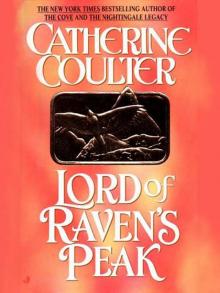 Lord of Raven's Peak
Lord of Raven's Peak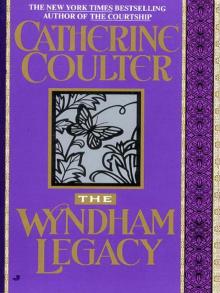 The Wyndham Legacy
The Wyndham Legacy The Strange Visitation at Wolffe Hall
The Strange Visitation at Wolffe Hall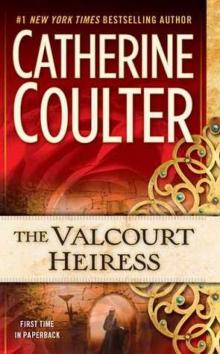 The Valcourt Heiress
The Valcourt Heiress Bombshell
Bombshell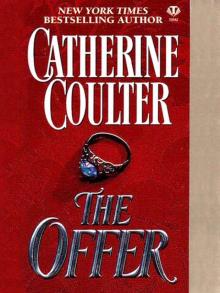 The Offer
The Offer The Edge
The Edge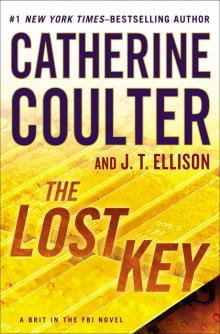 The Lost Key
The Lost Key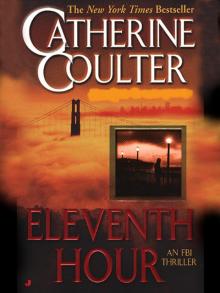 Eleventh Hour
Eleventh Hour Blindside
Blindside Devil's Daughter
Devil's Daughter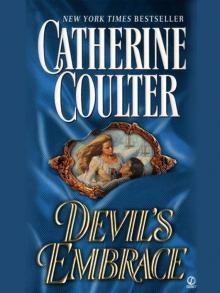 Devil's Embrace
Devil's Embrace Earth Song
Earth Song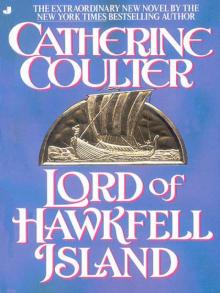 Lord of Hawkfell Island
Lord of Hawkfell Island Calypso Magic
Calypso Magic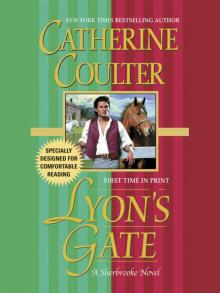 Lyon's Gate
Lyon's Gate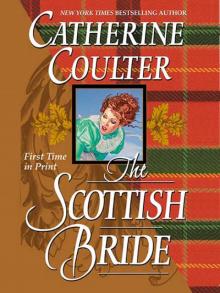 The Scottish Bride
The Scottish Bride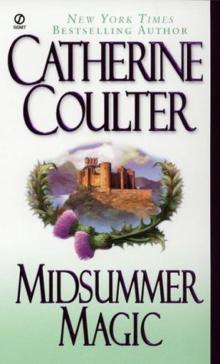 Midsummer Magic
Midsummer Magic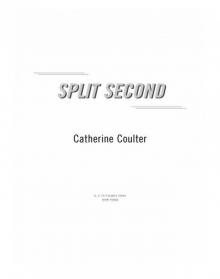 Split Second
Split Second Enigma
Enigma Blowout
Blowout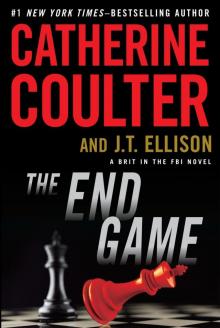 The End Game
The End Game Double Take
Double Take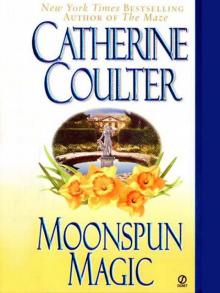 Moonspun Magic
Moonspun Magic The Courtship
The Courtship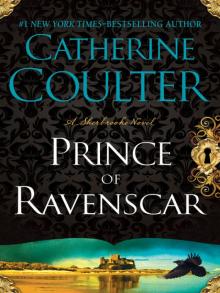 Prince of Ravenscar
Prince of Ravenscar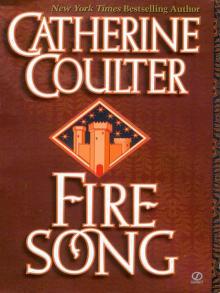 Fire Song
Fire Song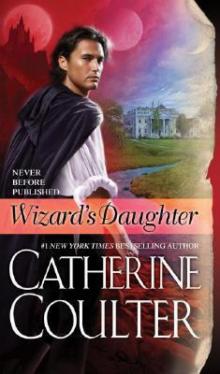 Wizard's Daughter
Wizard's Daughter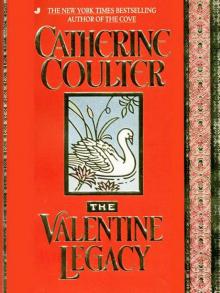 The Valentine Legacy
The Valentine Legacy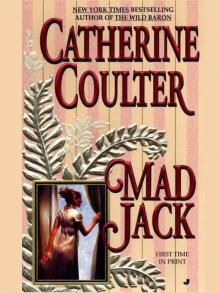 Mad Jack
Mad Jack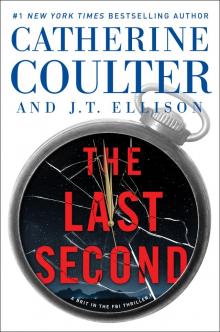 The Last Second
The Last Second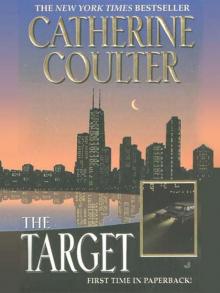 The Target
The Target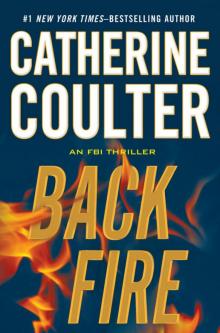 Backfire
Backfire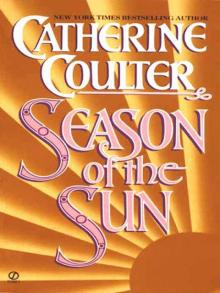 Season of the Sun
Season of the Sun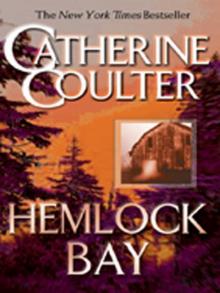 Hemlock Bay
Hemlock Bay Insidious
Insidious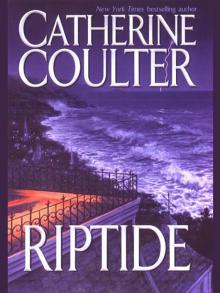 Riptide
Riptide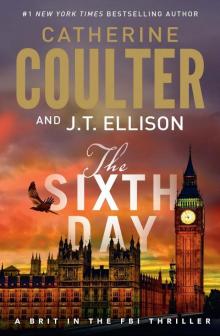 The Sixth Day
The Sixth Day Secret Song
Secret Song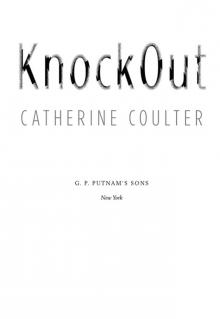 KnockOut
KnockOut Jade Star
Jade Star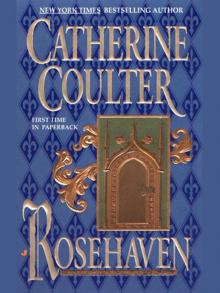 Rosehaven
Rosehaven The Hellion Bride
The Hellion Bride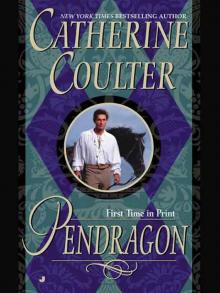 Pendragon
Pendragon Vortex
Vortex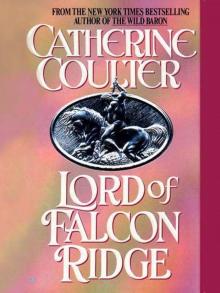 Lord of Falcon Ridge
Lord of Falcon Ridge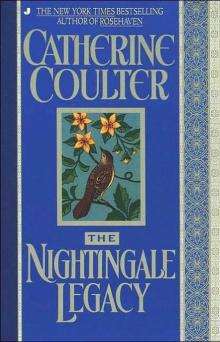 The Nightingale Legacy
The Nightingale Legacy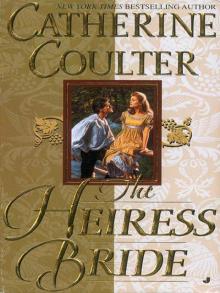 The Heiress Bride
The Heiress Bride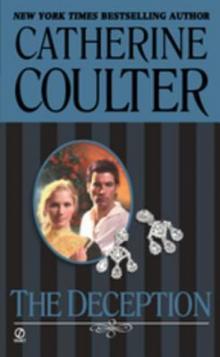 The Deception
The Deception The Maze
The Maze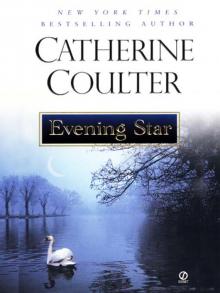 Evening Star
Evening Star Wild Star
Wild Star The Final Cut
The Final Cut Paradox
Paradox The Devil's Triangle
The Devil's Triangle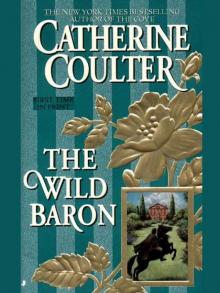 The Wild Baron
The Wild Baron Point Blank
Point Blank Labyrinth
Labyrinth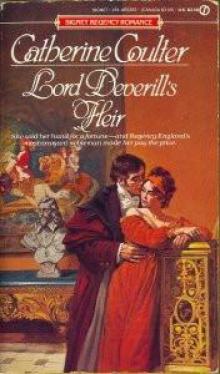 Lord Deverill's Heir
Lord Deverill's Heir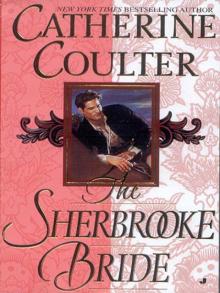 The Sherbrooke Bride
The Sherbrooke Bride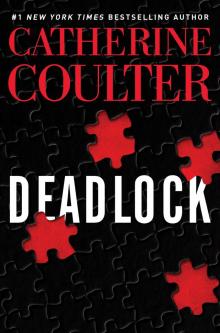 Deadlock
Deadlock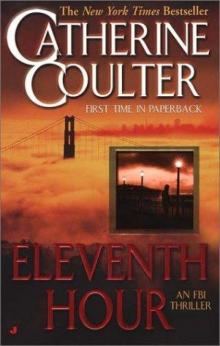 Eleventh Hour f-7
Eleventh Hour f-7 Power Play (An FBI Thriller)
Power Play (An FBI Thriller)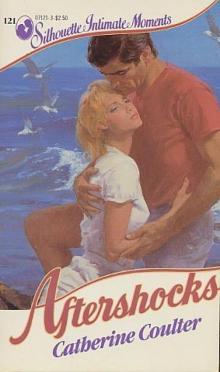 Aftershocks
Aftershocks Sherbrooke Twins tb-8
Sherbrooke Twins tb-8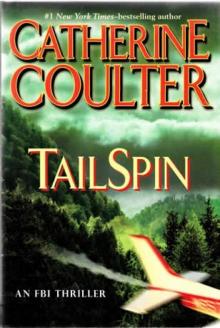 Tail Spin ft-12
Tail Spin ft-12 The FBI Thrillers Collection
The FBI Thrillers Collection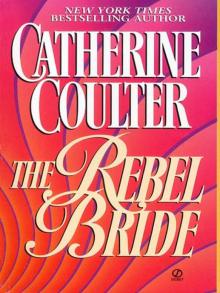 The Rebel Bride
The Rebel Bride Blindside f-8
Blindside f-8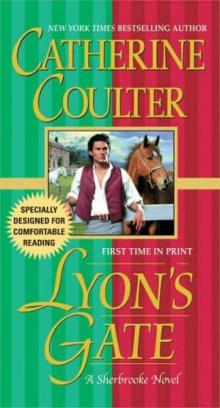 Lyons Gate tb-9
Lyons Gate tb-9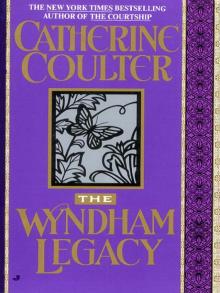 Wyndham Legacy
Wyndham Legacy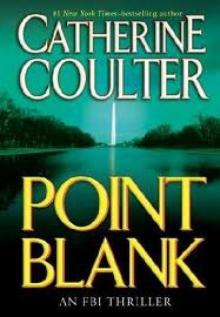 Point Blank f-10
Point Blank f-10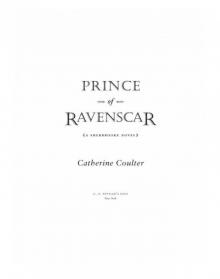 The Prince of Ravenscar
The Prince of Ravenscar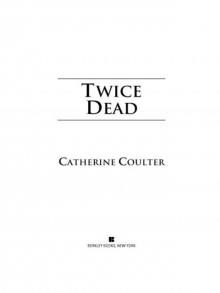 Twice Dead
Twice Dead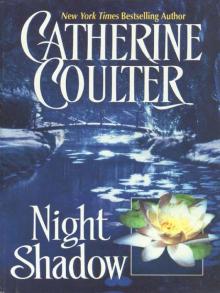 Night Shadow
Night Shadow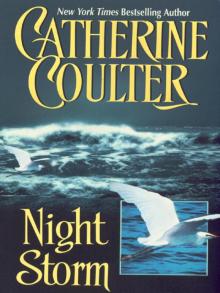 Night Storm
Night Storm The Beginning
The Beginning The Maze ft-2
The Maze ft-2 Beyond Eden
Beyond Eden The FBI Thrillers Collection: Vol 11-15
The FBI Thrillers Collection: Vol 11-15 FALSE PRETENSES
FALSE PRETENSES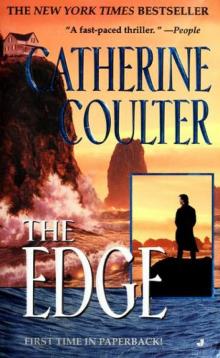 The Edge f-4
The Edge f-4 Bombshell (AN FBI THRILLER)
Bombshell (AN FBI THRILLER) The Ancient Spirits of Sedgwick House (Grayson Sherbrooke's Otherworldly Adventures Book 3)
The Ancient Spirits of Sedgwick House (Grayson Sherbrooke's Otherworldly Adventures Book 3)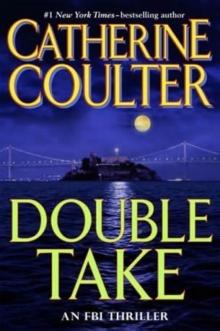 Double Take ft-11
Double Take ft-11 The Heir
The Heir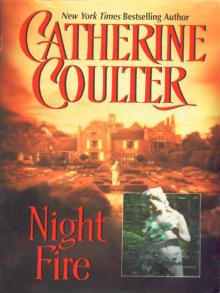 Night Fire
Night Fire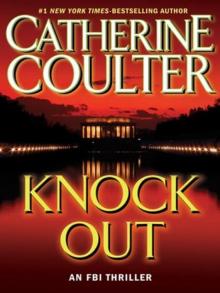 KnockOut ft-13
KnockOut ft-13 Hemlock Bay f-6
Hemlock Bay f-6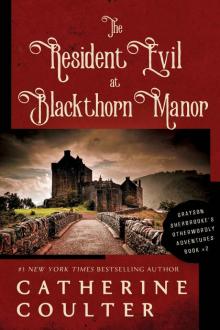 The Resident Evil at Blackthorn Manor (Kindle Single) (Grayson Sherbrooke's Otherworldly Adventures Book 2)
The Resident Evil at Blackthorn Manor (Kindle Single) (Grayson Sherbrooke's Otherworldly Adventures Book 2) Blowout ft-9
Blowout ft-9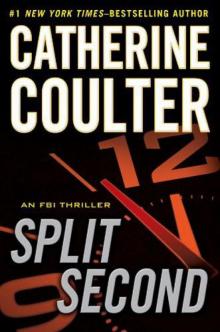 Split Second f-15
Split Second f-15 The Sherbrooke Series Novels 1-5
The Sherbrooke Series Novels 1-5 Impulse
Impulse Paradox (An FBI Thriller Book 22)
Paradox (An FBI Thriller Book 22)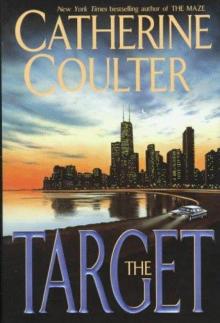 The Target f-3
The Target f-3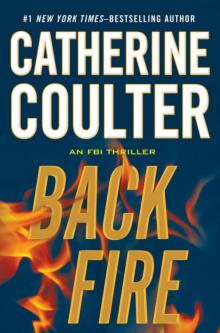 Backfire fst-16
Backfire fst-16 Born To Be Wild
Born To Be Wild Wizards Daughter tb-10
Wizards Daughter tb-10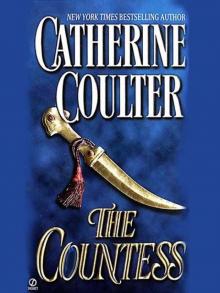 The Countess
The Countess